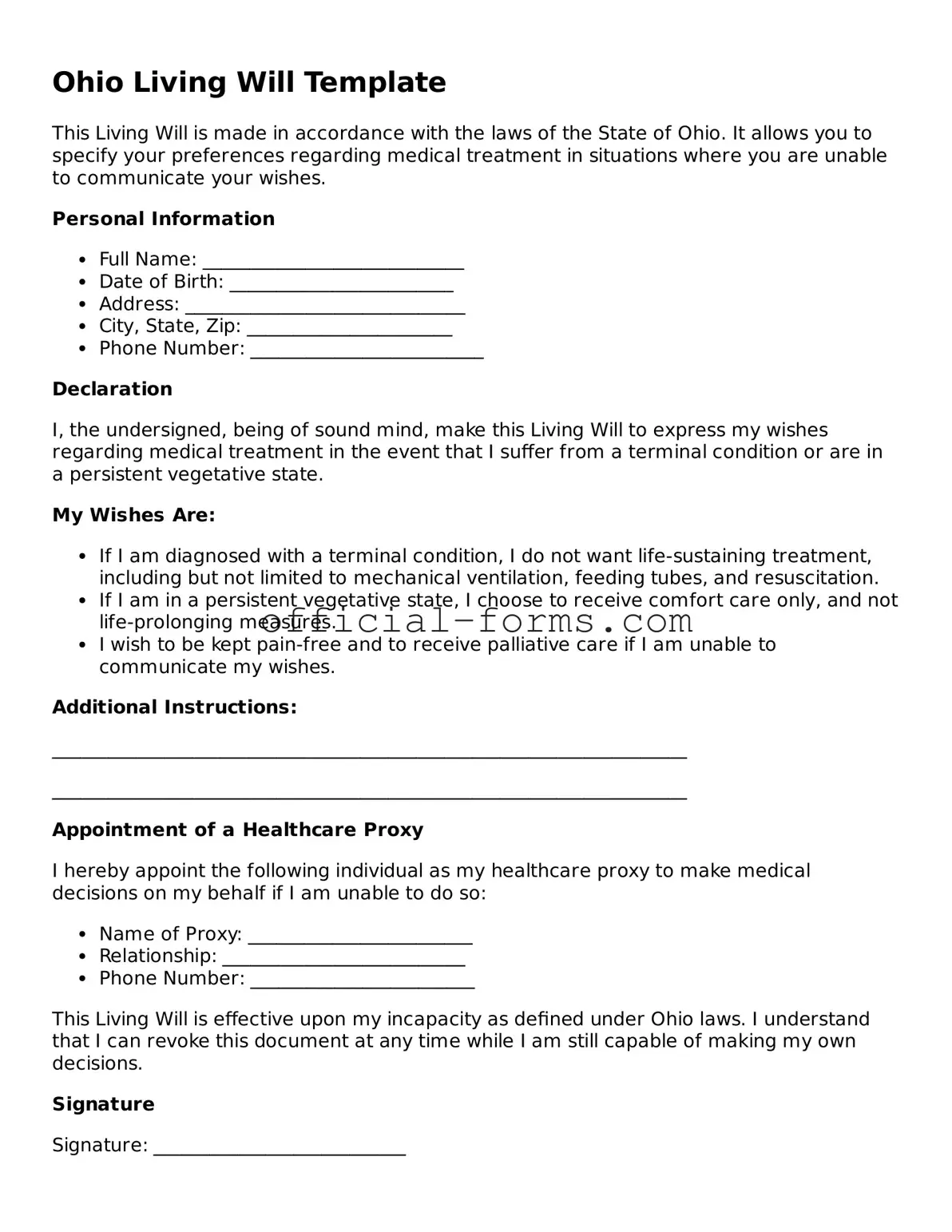Filling out the Ohio Living Will form is an important step in ensuring that your healthcare wishes are respected. However, many individuals make mistakes that can lead to confusion or unintended consequences. Here are nine common errors to avoid.
One frequent mistake is not clearly stating your wishes. When completing the form, it is crucial to articulate your preferences regarding medical treatment in specific terms. Vague language can lead to misunderstandings among healthcare providers and family members.
Another common error involves not signing the document correctly. The Ohio Living Will form requires your signature to be valid. If you forget to sign or do not date the form properly, it may not be honored by medical professionals when needed.
People often overlook the importance of having witnesses. Ohio law mandates that your Living Will must be signed in the presence of two witnesses. Failing to have the appropriate witnesses can render the document invalid.
In addition, individuals may neglect to update their Living Will as circumstances change. Life events such as marriage, divorce, or the diagnosis of a serious illness can impact your healthcare preferences. Regularly reviewing and revising your Living Will is essential.
Another mistake is not discussing your wishes with family members. It is vital to communicate your intentions to those who may be involved in your care. Without this conversation, your loved ones might struggle to make decisions that align with your desires.
Some people mistakenly assume that a Living Will is the same as a power of attorney for healthcare. While both documents are important, they serve different purposes. A Living Will outlines your wishes regarding medical treatment, while a power of attorney designates someone to make healthcare decisions on your behalf.
Additionally, individuals may fail to consider the specific medical scenarios that the Living Will addresses. It is important to think through various situations, such as terminal illness or irreversible coma, and express your preferences for each scenario clearly.
Another error involves not keeping copies of the completed document. After filling out the Living Will, it is essential to make copies and distribute them to your healthcare providers and family members. This ensures that your wishes are known and can be honored.
Lastly, some individuals may not understand the legal implications of their Living Will. It is advisable to familiarize yourself with Ohio laws regarding Living Wills to ensure that your document complies with state requirements and is legally binding.
By being aware of these common mistakes, you can take steps to ensure that your Ohio Living Will accurately reflects your healthcare wishes and is properly executed.

